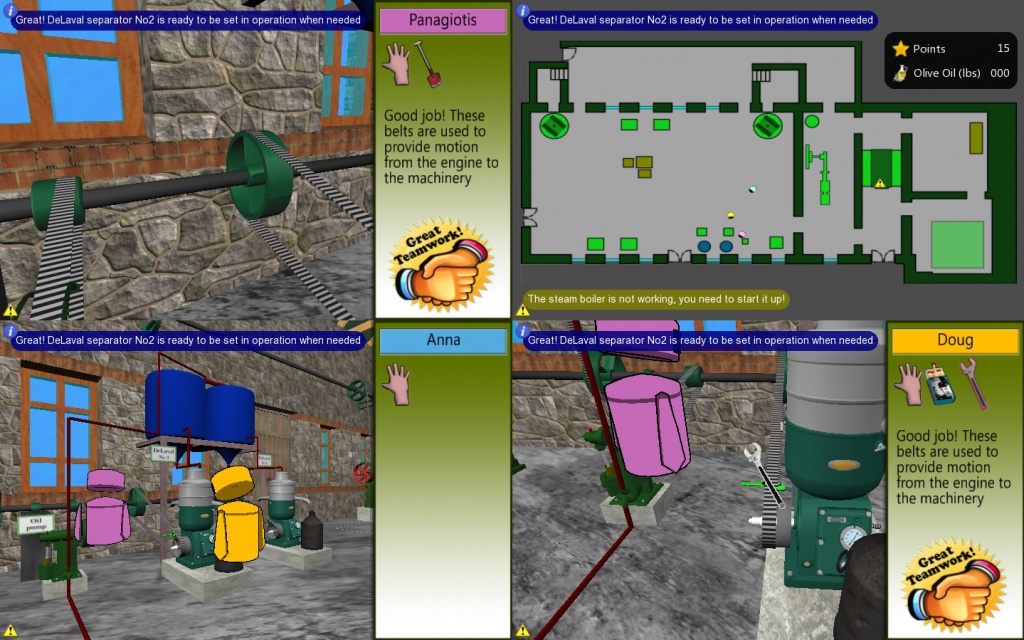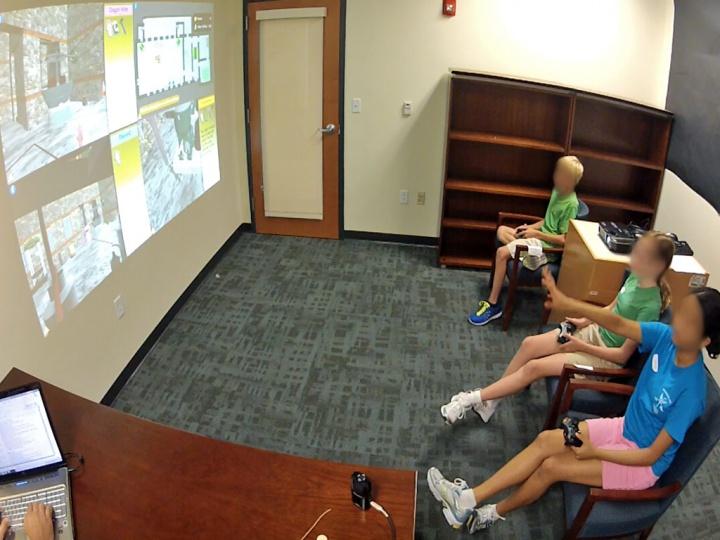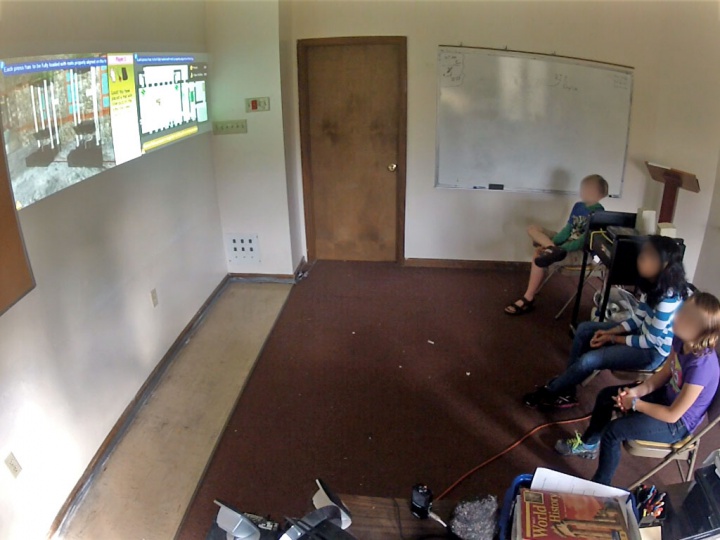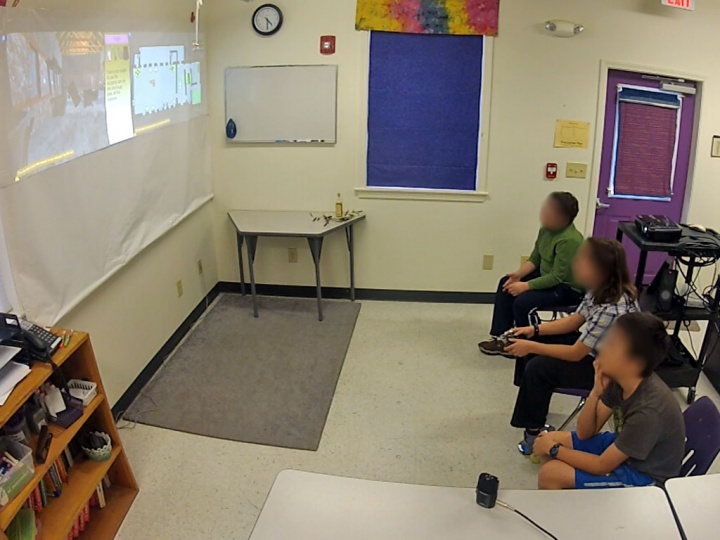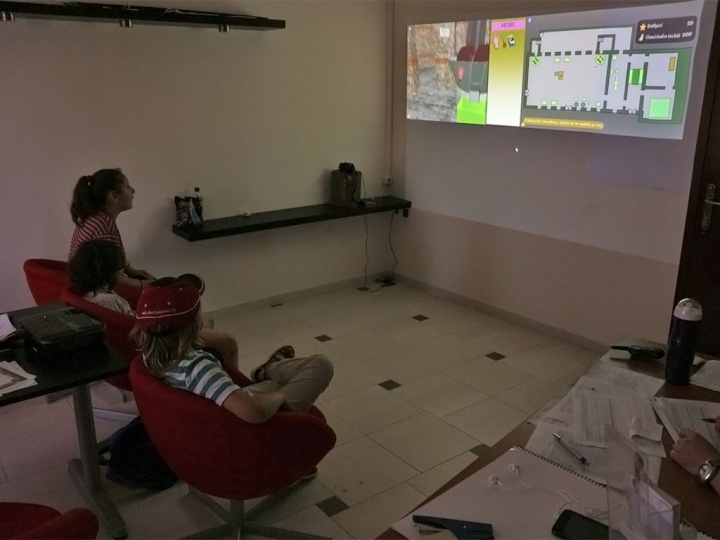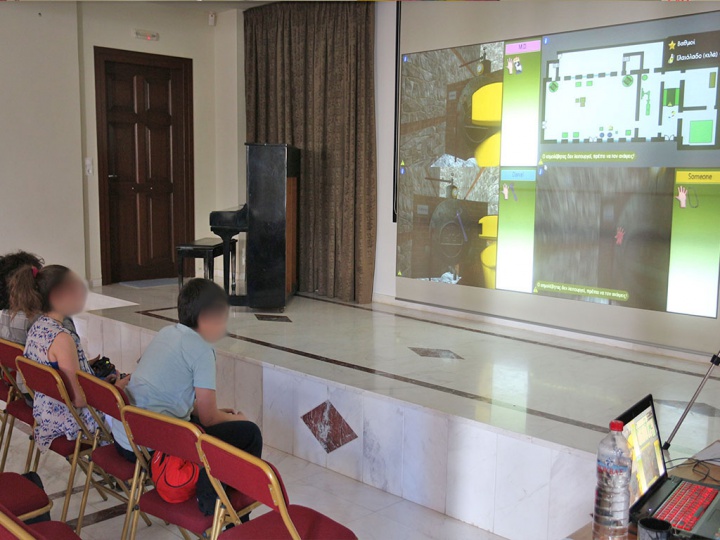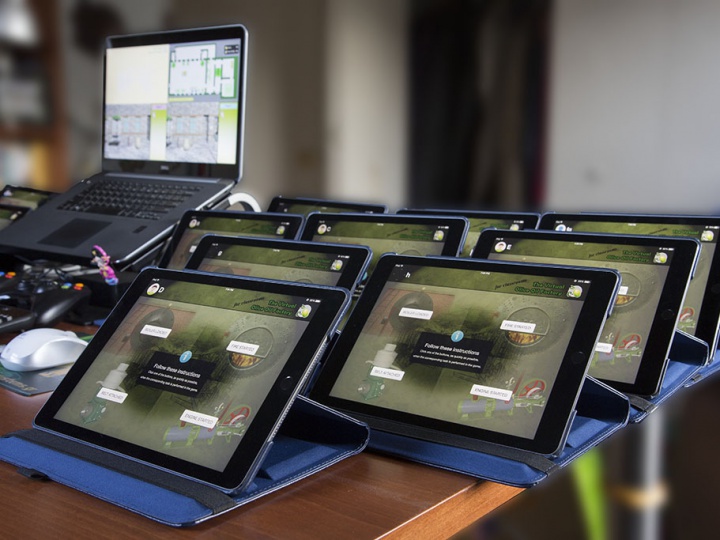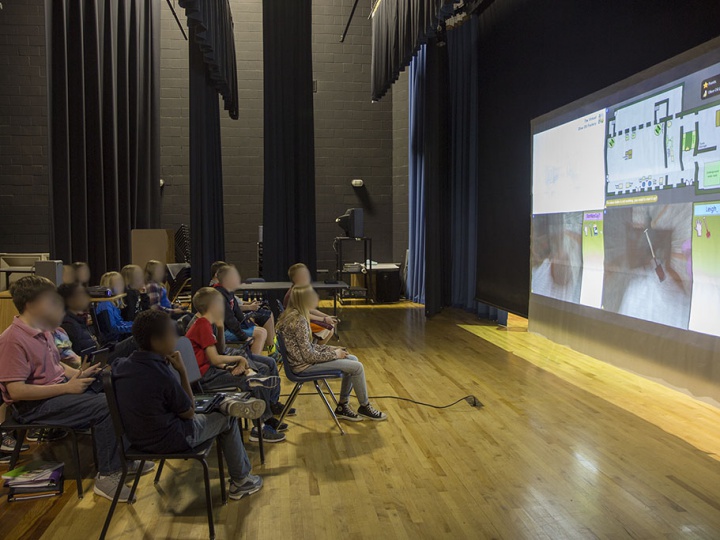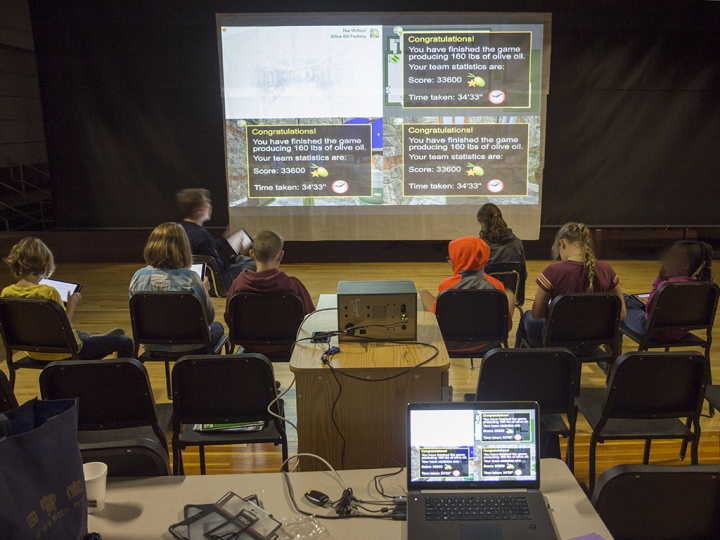Study I: Evaluating the Effects of Orchestrated, Game-based Learning in Virtual Environments for Informal Education
The aim of the first study was to understand the impact of interactivity on the game experience and learning of a small group of students playing a game. We were also interested in the interplay between the level of interaction (IV) and the learning (pre/post-test design), game experience, social presence, and presence (i.e., the sense of being inside a virtual environment) of the participating students.
Study II: Implications of Culture and Prior Knowledge for a Collaborative Learning Game in a Museum Context
The second study had the same goals as the first one, but also some additional ones. More specifically, we run the study in an actual museum in Greece to increase ecological validity and also assess how the museum visit expectations might affect learning. Recruiting students from a different culture, with traditionally more exposure to the knowledge domain, allowed us to assess the effects of prior knowledge and interests on the outcomes, but also compare results between cultures. Finally, we substituted the totally passive condition of the first study with a museum guide playing the game and facilitating students’ learning, in order to assess the impact of guided instruction in discovery learning settings.
Study III: Audience Interaction for Increased Student Involvement and Learning, using Games and Virtual Environments
The third experiment was designed to involve a larger group of students in the game and eventually the learning process, mainly addressing our initial motivation to engage a full classroom. In this study we were investigating how learning and game experience are affected by the level of involvement of the audience in the interactive experience.
Case Study: Audience Participation during Collaborative Game Play in Informal Learning Contexts

This fourth and last experiment of our research encompasses the lessons learned during the previous studies, delivering a real-world experience to visitors of a museum. We are specifically visiting The Franklin Institute in Philadelphia and delivering a series of mini-courses to their magnet high school, the Science Leadership Academy. The main objective of this case study is to increase the ecological validity of our work and gain further insights in developing a list of design guideling for effective audience engagement and learning in informal learning contexts.



